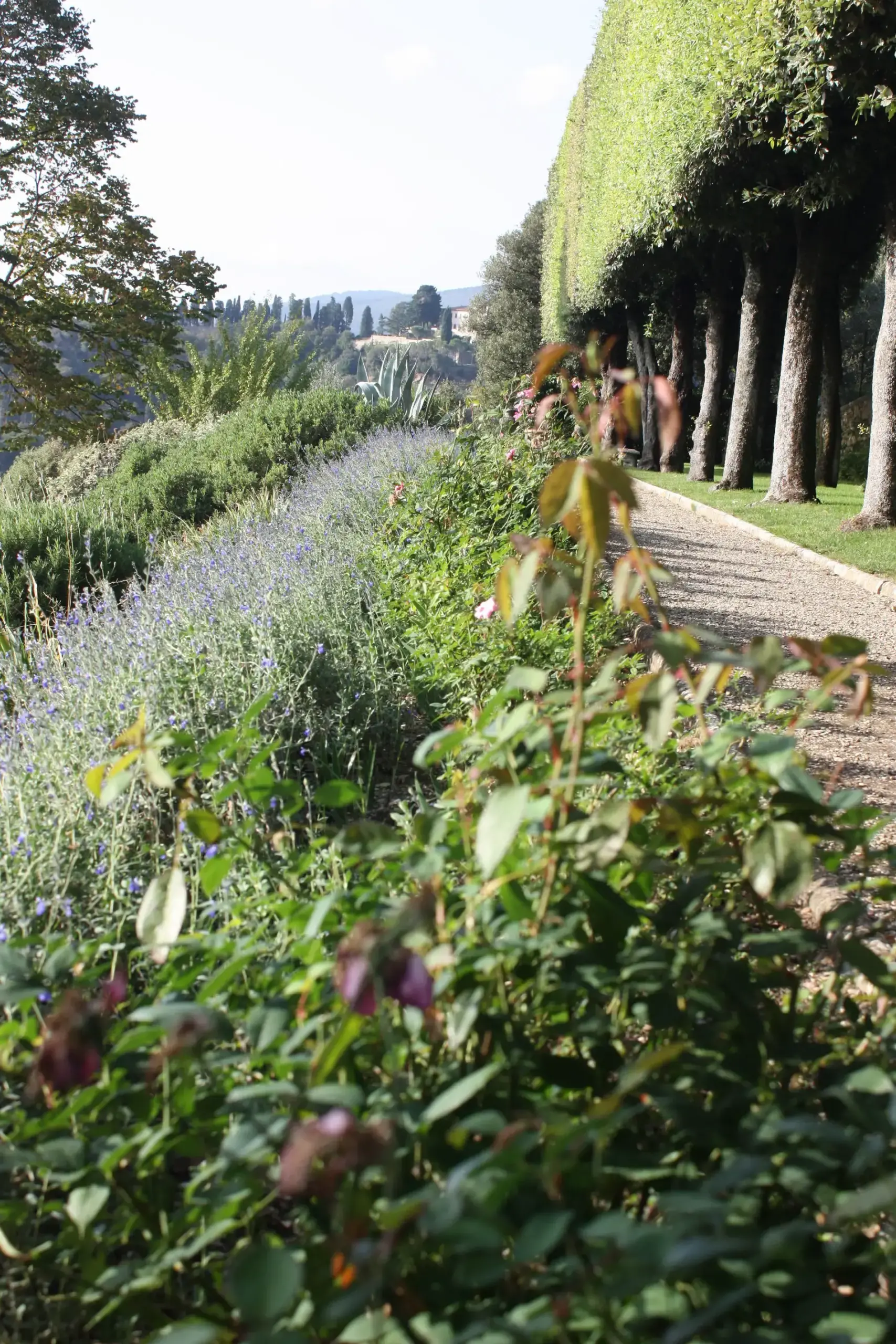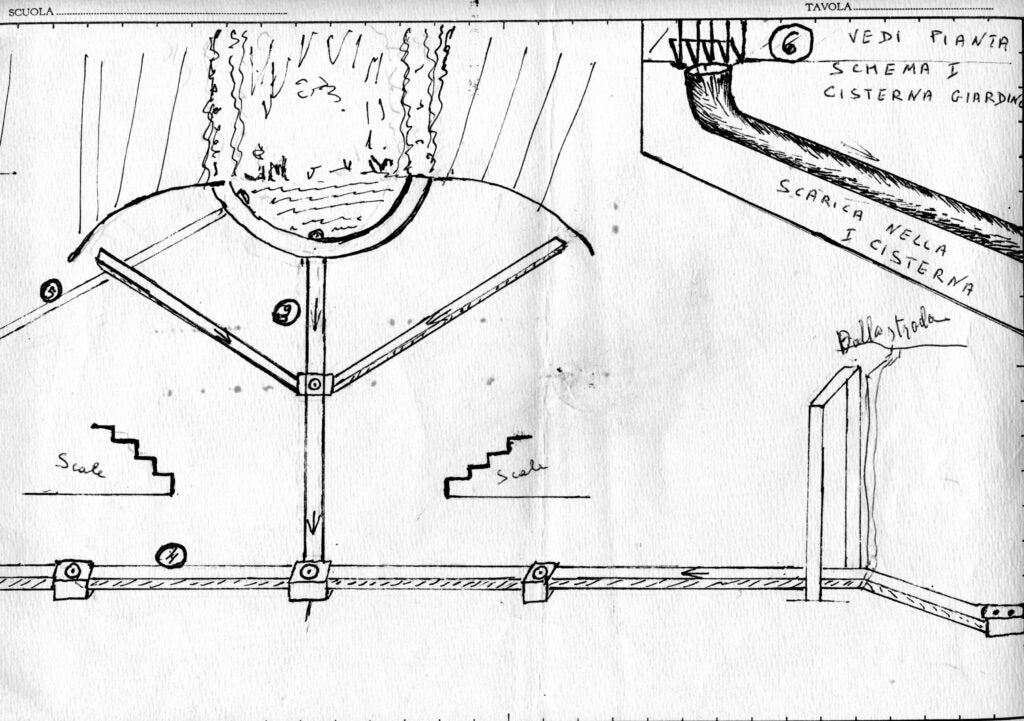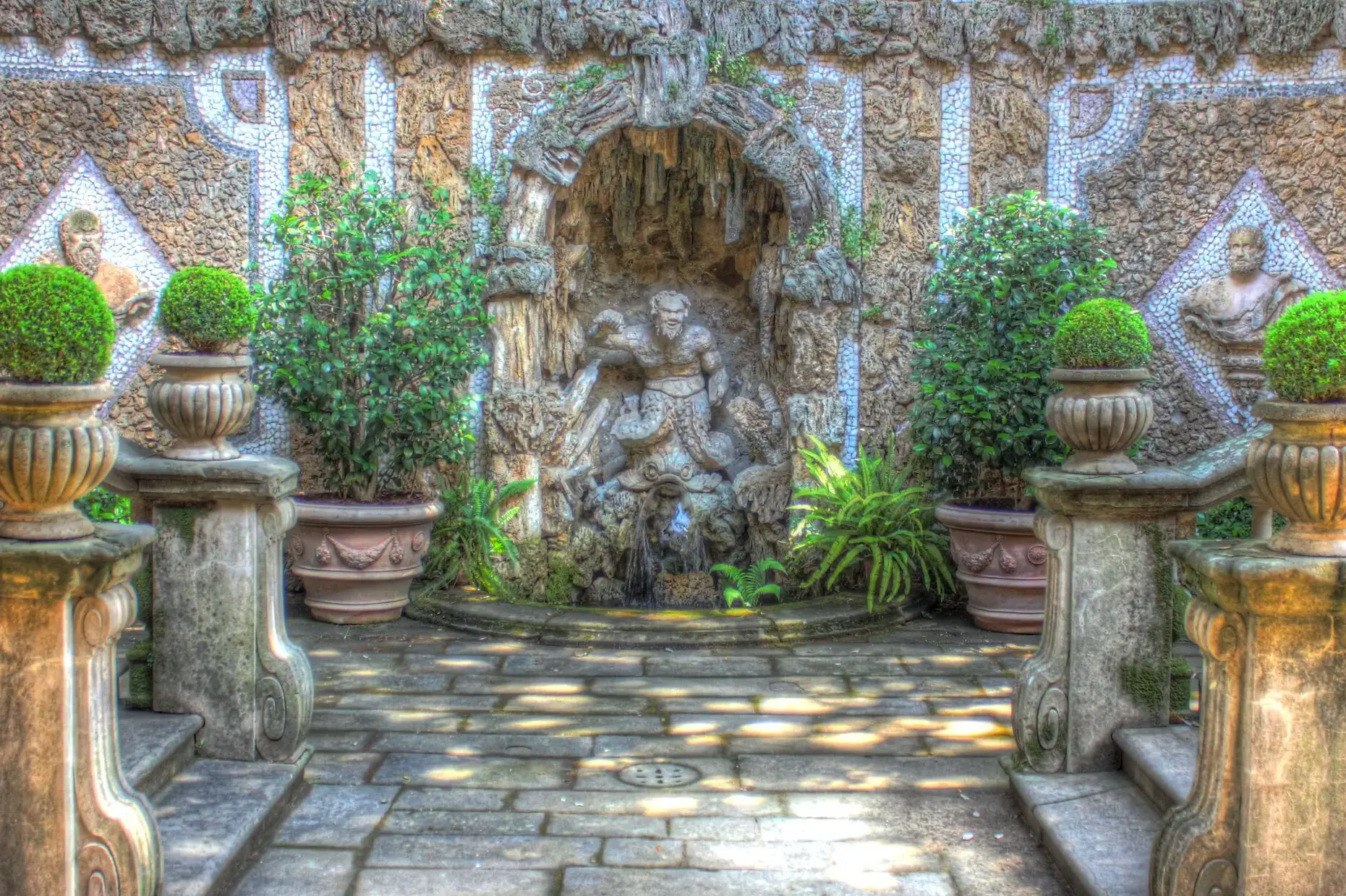Sustainability at Villa Le Balze: Explained.
Mia Boykin
October 24, 2023 — As October draws to a close, Villa Le Balze takes a look back on the month and reflects on this year’s Settimana della Lingua Italiana nel Mondo (Italian Language in the World Week). First established in 2001, Italian Language Week is a dedicated week in October that celebrates the Italian language while promoting a specific theme. For 2023, the theme was sustainability. To celebrate, this article serves as a deep dive into the Villa’s own sustainability, what we already do, and what we are planning to do in the future.
The Gardens & Conservation

Villa Le Balze houses its own little ecosystem within its seven beautiful formal gardens and vast “wild” garden spaces. These gardens provide the students with areas to relax, socialize, and observe the wonderful biodiversity of Tuscany. The most interesting thing about these gardens might be the picturesque similarities of their flora to the first records of the Villa from the early 20th century. Dr. Fulvio Orsitto, the director of Villa Le Balze, gives insight into the environment of the gardens.
“The Villa is under the tutelage of the Heritage Department of Florence…this exists to make sure we are preserving the historicity of the place. So it’s [upkeep of the gardens] more than keeping different plants here and there, it’s also about making sure that the very same plants that were there in 1913 are still there,” he said in a Zoom interview.
But it’s not easy upkeep. To ensure the health and safety of the plants, constant attention to the gardens is necessary. “There’s an arboriculturist who literally writes a 500-page tome telling us all about the plants, especially the big ones that have a medal with an identification number on them. So each plant has like a chapter on how it’s doing,” Dr. Orsitto said.
The gardens must go through year-round care and are essential to the landscape of Villa Le Balze. In addition to being beautiful, the maintenance of the trees and plants is essential to the structural soundness of the hillside. They help prevent landslides and ground instability. The company that takes care of them, Dimensione Verde, takes sustainability seriously.
He said, “In terms of pesticides, there are no pesticides. And even the fertilizers that they use, they’re basically all organic, so it’s all sustainable. And all the machinery that they use to cut the trees or to do any kind of thing that they need to do is electric, so there’s no pollution, no usage of gas or anything else.”
Sustainability at the Villa’s Core

Villa Le Balze has been dedicated to being sustainable since it was first designed by its architects, Cecil Pinsent and Geoffrey Scott. Back in 1911 when construction of the Villa first began, they developed a cistern and well system designed to collect runoff rainwater that flowed down the very hillside the Villa sits upon. The rainwater is then deposited into the cisterns, and is recycled for irrigation of the gardens. “We have, still in use, several cisterns that accumulate rainwater. And, you know, all that rainwater gets later used by the gardeners of Dimensione Verde. So it’s a really great, great system.” Dr. Orsitto explained.
Unfortunately, some of these pipes and cisterns have become damaged over the years, but work to repair and reconstruct the elaborate channel and pipe system will begin this fall. The project will be multi-year, each year focusing on repairing a different garden’s irrigation system. This will ensure the historical sustainability of the Villa continues.
Keeping with the Times
The Villa also mirrors the main campus Think Global, Drink Local! initiative. The program provided Brita filtration systems around buildings on campus. Following their steps, the Villa implemented filtered water stations to discourage the purchase and use of plastic water bottles.
“And a big thing that also happened last summer is that we purchased a machine to filter the water. And so rather than buying an outrageous amount of bottled water, like this last summer…students go with their own water container and can refill as many times as they want,” Dr. Orsitto said.
When it comes to daily student life, the Villa proudly partners with The Social Hub, which is a student residence that values being eco-conscious. Not only do student accommodations at The Social Hub feature water consumption meters in the showers but the company is dedicated to becoming zero waste by 2030. Dr. Orsitto also highlighted the free bike share offered by The Social Hub that many of our students enjoy because traveling around Florence is significantly more accessible by bike.
When students are at the Villa, one of the most important aspects of sustainability is waste sorting. The Italian government is stringent on waste management, and Dr. Orsitto explains what the Villa does to comply with these regulations.

“So, in Italy, waste sorting is very, very common. It’s the law basically so we teach our students how to differentiate between different kinds of waste. You know, organic versus plastic, etc so that’s done for everything that happens at the Villa…basically they’re in charge of putting waste in the right place,” he said. The Villa emphasizes the importance of recycling and composting to students and provides them with the education to do so.
Through construction, new gardening strategies, and a dedication to creating the most sustainable experience, Villa Le Balze is on the road to becoming an important touchstone in Georgetown’s sustainability efforts. In the time of climate change, it is necessary that every facet of Georgetown do what’s possible to ensure the health of the surrounding environment. Villa Le Balze could be an ultimate example of implementing sustainable change for other organizations to follow.
